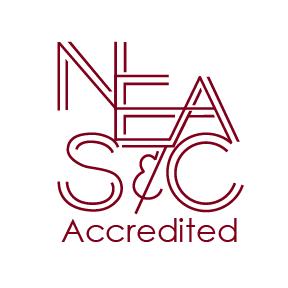All over the world! Historically, the majority have applied to, and enrolled at, colleges and universities in the United States, but our counselors are knowledgeable and prepared to support applications to any country. Other popular destinations include the United Kingdom, Canada, the Netherlands, the Middle East, Hong Kong, and Australia.
Students at UWC Changshu are limited to ten applications in their DP2 year. This application limit is a standard practice across many independent and international schools. We have this policy because applying to college is time-consuming and submitting too many applications will negatively impact both a student’s academic life and the quality of each application. Additionally, colleges are more likely to admit our students if they have a better chance of enrolling the student.
The University Counseling office will send a maximum of ten transcripts per student. For some application systems, one transcript can be used for multiple universities. For example, applications to the UK’s UCAS system, the University of California, and Ontario Universities each count as a single application.
The answer to this question depends on where in the world you want to study. In many countries, you need to apply directly to a specific program or course. For example, in the UK, you will have to focus on one area of study for all the universities to which you are applying. There are also destinations like Canada and Hong Kong where you apply to a specific program, but you could choose to apply to multiple subjects within the same university.
If you are applying to the United States, it is common for students to be ‘“undecided’” about their future area of study. In fact, many liberal arts colleges encourage students to explore different subjects before officially picking a major once they are there. However, some schools in the U.S. are focused on particular areas of study and admit students who have already developed an interest in that area. Examples include engineering and business schools, art and music conservatories, and nursing programs.
If you are planning to apply to universities with a specific area of study in mind, you might be required to show some prior exposure to that subject in the IB. In the UK, for example, students can research the “Entry Requirements” of different courses to see if there are any required IB subjects.
In the United States, colleges and universities generally do not have a strong preference for certain IB subjects. Instead, colleges want students to take the most challenging curriculum in which they can succeed academically. If you already know an academic area is your favorite, and you might want to study it at university, challenge yourself by taking a Higher Level class in that area. One exception to the above is that many Engineering programs in the U.S. require students to take IB Mathematics AA and IB Physics, preferably at the Higher Level.
University Counseling office offers IB subject selection counseling to all students at the beginning of their DP1 year. No matter what interests a student develops, or when they develop those interests, we will help them find schools that are a match for their subjects.
Standardized testing (SAT and ACT) is one of many factors considered in U.S. college admission processes. The most important factor in the admissions process is a student’s IB grades; academic performance at UWC Changshu will always be more important than an SAT score. Colleges and universities have also shared with us that students’ involvement in the UWC community can be more important than SAT scores. For these reasons, we do not let students take the SAT before December of their DP1 year. It is critical for students to have a strong academic foundation and not let studying for standardized testing get in the way of their UWC experience.
Due to the COVID-19 pandemic, almost every U.S. college and university is currently test-optional for the SAT and ACT. These policies mean it will not be detrimental to a student’s application if they chose not to take the SAT, unless a school specifically states a requirement/preference for the SAT for admissions or scholarship. If a student chooses to take the SAT, we recommend that they send the result only if it is above the average score of that school. If the score is below average, and would not help them stand out, we recommend using the test-optional route.
Taking an English Language Proficiency exam, like the TOEFL, IELTS, or DuoLingo English Test, is still a requirement from many universities around the world. These tests can sometimes be waived if you meet certain criteria such as being a native English speaker, attending a high school taught in English for a certain number of years, or taking IB English A. But some students will find that they need to take an English Language Proficiency exam for their applications. If a student’s score already meets the minimum entry requirements for a university, there is no advantage to retaking the exam for a higher score.
There are two main types of financial aid/scholarship in colleges and universities.
1. Merit-based aid is based on a student’s achievements. Students with outstanding academics, athletics, or other abilities that are of interest to a university may be offered a merit scholarship. Often students do not have to apply for merit aid to be considered, and these scholarships will not affect the chances of admissions.
2. Need-based aid is based on the financial situation of the student and their family. Students for whom it would be financially challenging to afford the cost of attending a college or university will fill out an application for need-based financial aid. These scholarships may have an effect on the chances of admissions. If a college has a “need blind” policy for international students, then applying for need-based financial aid will not hurt the chances of admissions. If a college has a “need aware” financial aid policy, then students who apply for need-based financial aid will be competing for a limited amount of scholarship.
UWC Changshu students are privileged to have access to the Davis Scholarship, which colleges can give to UWC students who apply for need-based financial aid. Having access to the Davis Scholarship means that, in many cases, applying for need-based financial aid will have less of a negative impact on the chances of admissions (or even zero negative impact). For more information, please visit the Davis Scholarship page.
Please note that the availability of scholarships ranges by countries, with some countries having limited or no financial aid. Students should work with their counselors to learn more.
Some UWC students choose to defer enrollment to college or university, taking a gap year after high school. At UWC Changshu, most students apply to college as a DP2 student and then, once admitted, request a one-year deferral from the school. These deferral requests are commonly granted if studying in the United States but may be less common in other countries. If you are interested in studying outside the U.S. please work with your counselor to understand their deferral policies.
The University Counseling office will support students in researching and applying to gap year programs such as Semester at Sea and Global Citizen Year. If a student decides to take a gap year and waits to apply to university until after they have graduated from UWC Changshu, the University Counseling office will offer some counseling service and application support.
University rankings do not capture the qualities of a school that will have a direct impact on student experience. Rankings are not a predictor of teaching quality, student wellbeing, or career outcomes. And oftentimes the ranking of specific majors or programs captures information that is most relevant for graduate students, not undergraduates.
The most important factors for choosing a college or university will vary by student. In the beginning of the university counseling process, our counselors will work closely with students to identify the qualities of a college that will ensure their happiness and success, matching the resources of the school with the unique needs of each student. This is what we call finding a “best fit” school.
Finding a school that is a "best fit” for each student will ensure that they have a future home where they can be the most successful on the path to their future goals.
The University Counseling Office only prepares transcripts for the purpose of college applications. If a student or graduate needs a transcript for any other purpose (including a summer program application or an embassy appointment) please contact the Office of Education Administration & Support registrar@uwcchina.org.
If you plan to submit a transfer application to another college or university, please send an email to unicounseling@uwcchina.org. Include the name of each college or university to which you plan to apply, the email address of each school’s undergraduate admissions office, and any relevant applicant number you have received while completing each transfer application. Our office will send each school a copy of your Final UWC Transcript.










